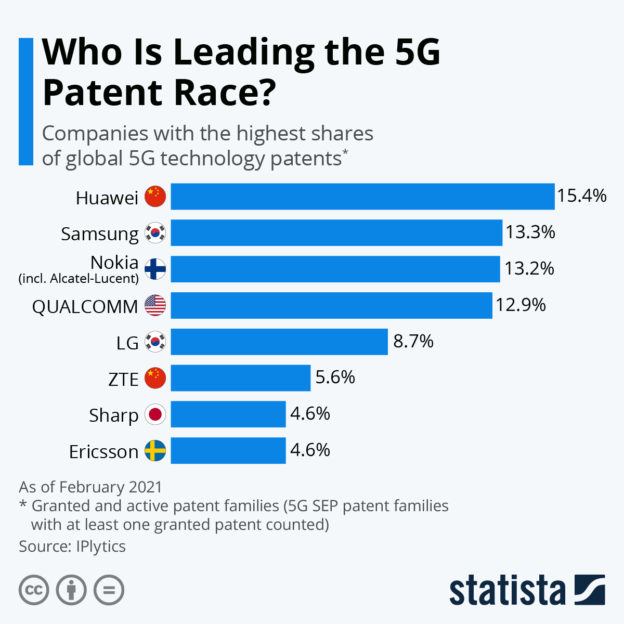Jio had named Korea’s Samsung, Finland’s Nokia and Sweden’s Ericsson besides applying to trial its own technology. Bharti Airtel and Vodafone Idea had opted for Nokia and Ericsson.
NEW DELHI: The Department of Telecommunications (DoT) has cleared the much-delayed 5G trials, allowing Bharti Airtel, Reliance Jio and Vodafone Idea’s applications that seek to partner non-Chinese equipment vendors to work on developing use cases relevant for India on the next gen technology. The trials will initially be for six months.
“The applicant TSPs (telecom service providers) include Bharti Airtel Ltd., Reliance Jio Infocomm Ltd., Vodafone Idea Ltd. and MTNL. These TSPs have tied up with original equipment manufacturers and technology providers which are Ericsson, Nokia, Samsung and C-DOT,” the DoT said in a statement Tuesday.
“In addition, Reliance Jio Infocomm Ltd will also be conducting trials using its own indigenous technology,” DoT added.
Names of Chinese players Huawei and ZTE were missing from the list of 13 applications from telcos which were approved by the government, in a clear signal that the two gear makers would not be a part of India’s 5G deployments as well.
ET was the first to report on the 5G trial clearance on its online platforms on Tuesday.
In the initial 5G applications for trials which were first slated to be held in early 2019, both Airtel and Vodafone Idea had applied to partner with Huawei and ZTE in some geographies. Since then Sino-Indian border tensions peaked. Then, as reported by ET, last September, the telcos were again asked to submit a set of “priority vendors” for 5G trials. In response, Jio had named Samsung, Nokia and Ericsson besides applying to trial its own technology. Bharti Airtel and Vodafone Idea opted for Finland’s Nokia and Sweden’s Ericsson while MTNL applied to partner state-run Centre for Development of Telematics (C-DoT).
Industry insiders said this was a way for the government to start the much-delayed trials without having to take an explicit decision on keeping Huawei and ZTE away amid continuing border tensions with China.
Carriers are being given 100 Mhz each in the mid-band (3.2 GHz to 3.67 GHz), 800 Mhz each in the millimeter wave band (24.25 GHz to 28.5 GHz) and 10 Mhz each in the 700 GHz, a senior government official told ET.
“Telecom service providers will also be permitted to use their own spectrum in the 800 MHz, 900 MHz, 1800 MHz and 2500 Mhz,” the statement issued by the government said.
The trial period of six months is inclusive of an estimated time period of two months for procurement and setting up of the equipment, DoT said.
The DoT though has laid out stringent conditions for testing, including testing use cases in rural as well as urban areas and paying special attention to security of the network, the official told ET. Telcos were warned that they need to use the airwaves allotted strictly for trials and not for commercial deployment, a clause if breached will be met with serious consequences, official said. Also, any data generated in the trials will have to be stored in the country.
The objectives of conducting 5G trials include testing 5G spectrum propagation characteristics especially in the Indian context, model tuning and evaluation of chosen equipment and vendors; testing of indigenous technology; testing of applications (such as tele-medicine, tele-education, augmented/ virtual reality, drone-based agricultural monitoring, etc.);and to test 5G phones and devices, DoT said.
It added that the next gen technology is expected to deliver improved user experience in terms of data download rates (expected to be 10 times that of 4G), up to three times greater spectrum efficiency, and ultra low latency to enable Industry 4.0.
“Applications are across a wide range of sectors such as agriculture, education, health, transport, traffic management, smart cities, smart homes, and multiple applications of IOT (Internet of Things),” DoT said.
Emails sent to all three private telcos on the matter didn’t elicit a response.
“It (the trials) will stimulate local R&D ecosystem to develop innovative applications tailored to commercial needs. It will enable TSPs to validate 5G technologies and use cases such as IoT and Industry 4.0,” SP Kochhar, director general of the Cellular Operators Association of India (COAI) said in a statement. “We hope the government will also look into the industry’s call for revisiting the 5G spectrum pricing.”
COAI represents all private telcos as well as gear vendors
“We are confident of our readiness to support our customers in implementing 5G strategy with the advantage of our technology leadership, our experience in serving customers globally, and our initiatives in India including 5G manufacturing in Chennai,” a Nokia spokesperson said in a separate statement.
Telcos have been encouraged to conduct trials using indigenously developed 5Gi technology in addition to the already known 5G technology.
“The trials geographical area will be limited to 30 G Nodes in case of foreign 5G technology and 300 G Nodes for indigenously developed technology since foreign based technologies have undergone trials but indigenously developed technologies need,” the official added. Nodes reflect the geographical area covered for trial purposes.
https://telecom.economictimes.indiatimes.com/news/government-oks-13-applications-for-5g-trials-chinese-vendors-kept-out/82383855





